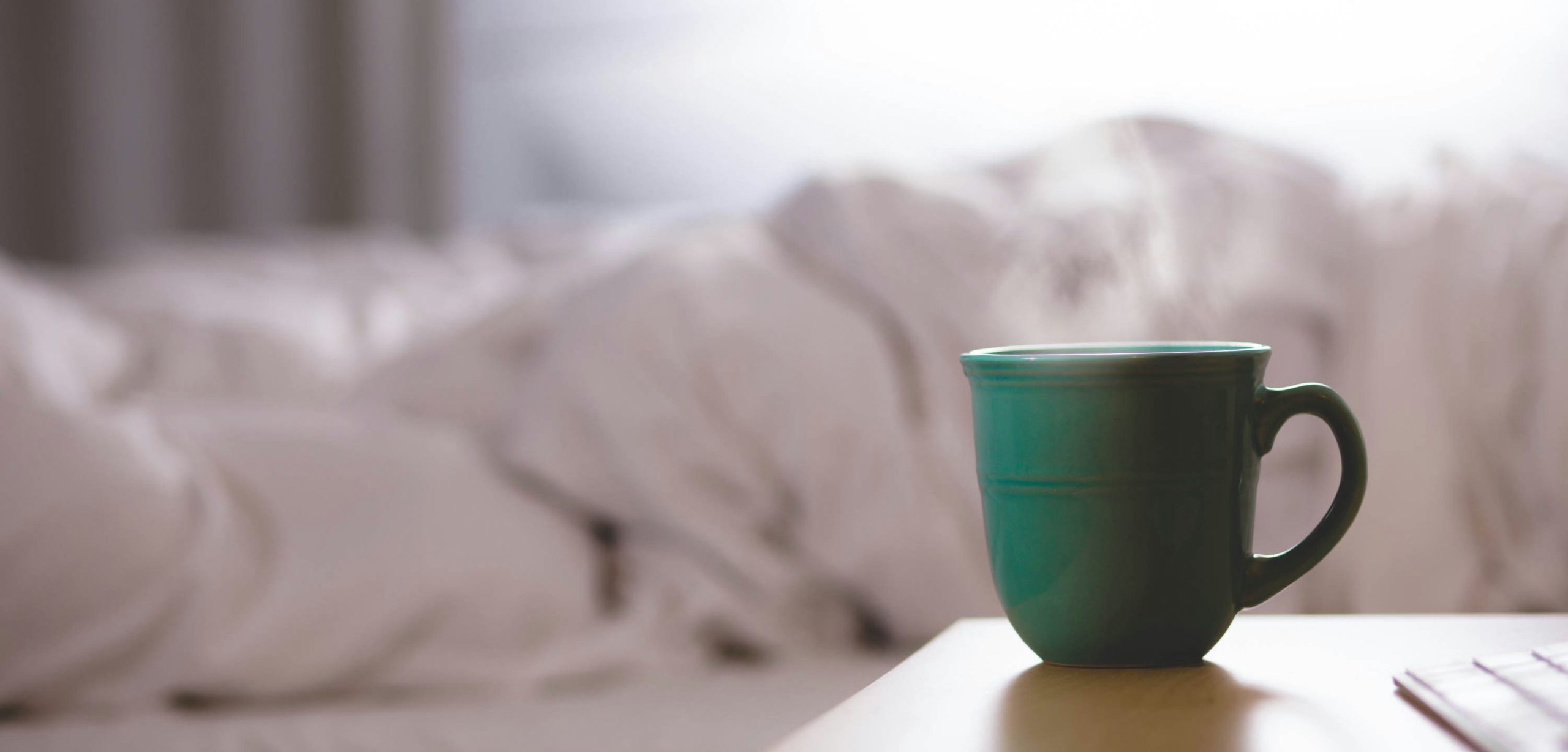Here are some of the best and most effective natural sleep remedies for a good night’s rest.
It’s no wonder that it’s so hard to drop off at night and stay asleep. Our hectic lives mean we are almost always racing against the clock.
If you lie awake worrying or are going through a spell of unexplained sleepless nights, you’re not alone. According to the Sleep Foundation, up to 48% of the UK population suffers from insomnia.
To escape a cycle of nighttime wakefulness, we can turn to several natural sleep remedies. These botanicals with sedative properties offer effective, non-addictive, gentler ways to lull us to sleep.
List of natural sleep remedies
Valerian (Valeriana officinalis)
Put simply, valerian root is the best natural sleep aid available. Steeped in herbal medicine’s long history, its sedative properties have been relied upon since Ancient Greece. The root of this flowering plant calms thoughts and soothes tension.
Valerian reduces the amount of time it takes to fall asleep, deepens sleep quality, and supports, rather than disrupts, the body’s natural sleep-wake cycle.
While it can be taken in tea or tincture form, its strong smell — which reflects the plant’s medicinal potency — might put some people off drinking it. Taking Valerian as a herbal sleeping tablet is equally effective and will save you holding your nose!
Passion flower (Passiflora incarnata)
Almost alien-like in its beauty, the petals of this purple, flowering vine possess striking sedative qualities. In one study, passion flower extract was found to significantly increase slow-wave sleep and REM, the deep sleep phase in which we vividly dream.
Passion flower can be found as a loose dried herb, which can be made into an infusion, or taken in the form of natural sleep tablets, in which it’s sometimes blended with valerian.
Lavender (Lavandula)
It’s unsurprising that lavender appears in our pick of herbal remedies for insomnia. Long heralded for its soporific powers, lavender likely comes to mind first when we think of natural sleep aids.
A steam infusion before bed is a wonderful way to use lavender for sleep: Put a few drops of essential oil in a bowl of hot (not boiling) water, lower your face a few inches from the surface with a towel over your head and breathe deeply for five minutes or so.
Lavender honey stirred into warm milk is deeply unwinding for the nervous system too; and a potted bedside lavender plant also creates a calming atmosphere throughout the night.
Roman Chamomile (Chamaemelum nobile)
A gentle sedative, and stress-reducer, this traditional, sweet-smelling herb with daisy-like flowers is celebrated as a natural soother. Available as an essential oil, it is most commonly taken in tea form.
Loose chamomile is particularly potent and is delicious and ultra-comforting when infused into warm milk. Chamomile’s calmative qualities stem from the antioxidant apigenin, deficiencies of which are associated with poor sleep.
The plant has also been shown to reduce symptoms of depression, which significantly impacts how well we sleep, and for how long.
Hops (Humulus lupulus)
Suddenly somnolent field labourers attest to hops’ almost fairytale-like — yet very true — reputation for sending people to the land of nod, whether they want to go or not. Steeped in a long anecdotal and medicinal history, consumption of hops is an effective natural sleep aid.
Not only are hops a sedative, they synchronise the body’s circadian rhythms or natural sleep–wake cycles. Hops reduce anxiety, improve sleep quality, and enhance sleep onset. In herbal sleeping pills they are often mixed with Valerian.
One of the best ways to draw on hops’ slumberous potential is with a hops pillow. Easily purchasable online, it can be slipped under your own pillow, providing the closest thing possible to drifting off in a hypnotic field of hops.
St John’s wort (Hypericum perforatum)
St John’s wort — traditionally used to treat low mood and mild anxiety — is also a natural drug that helps you sleep.
In addition to balancing the brain’s uptake of serotonin, the so-called ‘happy hormone’, St John’s wort assists with the production of melatonin, the ‘sleep hormone’, which plays a central role in regulating the body’s circadian rhythms.
HRI Good Mood tablets provide the strongest daily dose of St John’s wort available on the UK market, in two tablets, with the flexibility to take one for a gentler dose. St John’s wort is best taken earlier in the day rather than immediately before bed.
Rose (Rosa damascena)
Studies have found that the inhalation of rosa damascena significantly improves sleep quality. Not only does rose contain melatonin, ethyl acetate extracted from the petals has potent sedative effects.
A few drops of essential oil in a bath is the most pleasurable way to inhale the plant’s hypnotic properties. A foot soak with rose oil also works well, with the soles of the feet being particularly porous. Soaking the feet is a relaxing evening practice that is sometimes more doable than an hour submerged in the bath.
Ashwagandha (Withania somnifera)
This ayurvedic herbal medicine has been recognised in recent decades in the west for its sleep-inducing properties. Ashwagandha helps us fall asleep faster, improves sleep quality, and increases total time spent sleeping.
Available in powder form, which can be stirred into milk, it is easiest to take as a natural sleep tablet. Ashwagandha is an adaptogen, which balances stress hormones and reduces worry and tension, while its regulation of serotonin contributes to improved mood during the day, promoting better, longer sleep at night.
Natural sleep remedies offer hope that we can once again find ourselves in a healthier pattern of sleep and restore more of our natural energy.
Please note: Pregnant or breastfeeding women should consult their doctor before taking any herbal medicines and avoid essential oils. Always read the label before starting on a course of herbal medicines.


